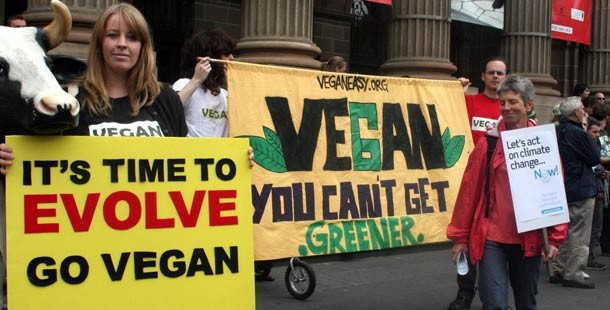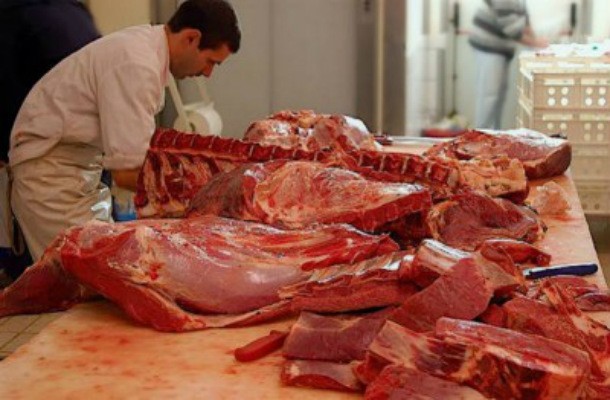Recently, there have been discussions suggesting that adopting a vegetarian diet is a healthier lifestyle choice, as excessive consumption of meat, particularly red meat, may detrimentally impact your heart, blood vessels, and general wellbeing. Ethically speaking, it’s been suggested that meat consumption implies complicity in the daily animal cruelty and killings. Furthermore, you may be aware that numerous celebrities, such as Brad Pitt and Angelina Jolie, adhere to a vegetarian diet, which might lead you to perceive vegetarianism as trendy or appealing.
As with most things in life, however, the truth is somewhere in the middle, and vegetarianism is no exception. However, we won’t be examining the pros and cons of being a vegetarian or vegan with this list but instead will be highlighting 25 Surprising Facts About Vegetarianism You Might Not Know that will inform and enlighten you about a lifestyle that has been around for thousands of years despite becoming “trendy” only recently.

Feature Image: pixabay.com
Vegetarianism is based in ancient Indian and Greek philosophy. In India, vegetarianism originates in the philosophy of ahimsa, or nonviolence, toward animals and other living creatures. For the Greeks, to be a vegetarian had ritual and medical purposes.
 Source: The Heretic's Feast: A History of Vegetarianism, Image: Wikipedia
Source: The Heretic's Feast: A History of Vegetarianism, Image: Wikipedia One of the first and most famous vegetarians was the Greek philosopher and mathematician Pythagoras (best known for the Pythagorean theorem), who lived during the sixth century BCE. The term “Pythagorean diet” was commonly used for a plant-based diet until the term “vegetarian” was coined in the nineteenth century.
 Source: The Heretic's Feast: A History of Vegetarianism, Image: Wikipedia
Source: The Heretic's Feast: A History of Vegetarianism, Image: Wikipedia For one to understand better what vegetarianism is all about, one has to understand that there are several types of vegetarians. The strictest type are called vegans. Vegans avoid not only meat but also all products that come from animals.
 Source: veg-world.com, Image: Wikipedia
Source: veg-world.com, Image: Wikipedia The word vegan is derived from vegetarian. It was first used in 1944 when Elsie Shrigley and Donald Watson thought that being vegetarian included too many animal by-products and did not encompass a completely plant-based diet.
 Source: The Heretic's Feast: A History of Vegetarianism, Image: Wikipedia
Source: The Heretic's Feast: A History of Vegetarianism, Image: Wikipedia People become vegetarians for a number of reasons, including health, political, environmental, cultural, aesthetic, and even economic reasons. However, the most frequent reason is based on ethical objections to animal cruelty.
 Source: Vegetarianism in a Nutshell - The Vegetarian Resource Group, Image: Wikipedia
Source: Vegetarianism in a Nutshell - The Vegetarian Resource Group, Image: Wikipedia Scientific studies have repeatedly shown that a vegetarian diet increases the body’s metabolism, helping the body to burn fat and calories up to sixteen percent faster than the body of someone who eats meat.
 Source: hsph.harvard.edu, Image: Wikipedia
Source: hsph.harvard.edu, Image: Wikipedia The first Renaissance figure to advocate vegetarianism was Leonardo da Vinci. Actually, he was a hard-core vegan who openly argued with the strict local religious authorities of his time, saying that humans do not have a God-given right to eat animals.
 Source: The Heretic's Feast: A History of Vegetarianism, Image: commons.wikimedia.org
Source: The Heretic's Feast: A History of Vegetarianism, Image: commons.wikimedia.org A 2008 study by Time approximates the number of U.S. vegetarians at 7.3 million adults or 3.2 percent of the population. Of these, only 0.5 percent, or one million, are vegans.
 Source: time.com, Image: Wikipedia
Source: time.com, Image: Wikipedia The French philosopher Voltaire is known for being a major historical figure in the cause of vegetarianism (though we don’t know if he was a vegetarian). He used the antiquity of Hinduism to attack the Bible’s claims of dominance and acknowledged that the Hindus’ treatment of animals represented a “shaming alternative to the viciousness of European imperialists.”
 Source: The Heretic's Feast: A History of Vegetarianism, Image: Wikipedia
Source: The Heretic's Feast: A History of Vegetarianism, Image: Wikipedia The China Study is a book that was based on a twenty-year study that compared the mortality rates of meat eaters and vegetarians. According to the book, citizens of countries who ate more meat were more likely to have higher death rates from “Western diseases,” while those of countries who ate more plant food were healthier.
 Source: The China Study, Image: Wikipedia
Source: The China Study, Image: Wikipedia To eat or not to eat meat has been debated throughout the history of the Christian faith. Many theologians have claimed a vegetarian diet is the most compatible with Christian values such as mercy and compassion. Jesus is believed to have been a pescatarian.
 Source: The Heretic's Feast: A History of Vegetarianism, Image: Wikipedia
Source: The Heretic's Feast: A History of Vegetarianism, Image: Wikipedia A pescatarian is a vegetarian who eats fish. The term first originated in 1993 and is a blend of the Italian word for fish, pesce, and the word vegetarian.
 Source: The Heretic's Feast: A History of Vegetarianism, Image: Wikipedia
Source: The Heretic's Feast: A History of Vegetarianism, Image: Wikipedia Unfortunately for vegetarians, vitamin B12 is one of the few nutrients that comes only from animal sources. Research has shown that a vitamin B12 deficiency may be tied to weakening bones.
 Source: webmd.com, Image: Wikipedia
Source: webmd.com, Image: Wikipedia Benjamin Franklin was one of the first and most famous American vegetarians, and he was the one who introduced tofu to the country in 1770. Unfortunately for the vegetarian community, he later became a meat eater again.
 Source: The Heretic's Feast: A History of Vegetarianism, Image: Wikipedia
Source: The Heretic's Feast: A History of Vegetarianism, Image: Wikipedia In case you’re as confused as we are by the many subcategories of vegetarianism let us break down a few more for you: an ovo-vegetarian will eat eggs but no other dairy products. A lacto-vegetarian will eat dairy products but not eggs. An ovo-lacto vegetarian diet includes both eggs and dairy products.
 Source: The Heretic's Feast: A History of Vegetarianism, Image: Wikipedia
Source: The Heretic's Feast: A History of Vegetarianism, Image: Wikipedia Contrary to popular belief, many studies have shown that vegetarians have only slightly lower protein intake than those who eat meat. The same studies confirm that vegetarian diets provide enough protein if they include a variety of plant sources.
 Source: authoritynutrition.com, Image: Wikipedia
Source: authoritynutrition.com, Image: Wikipedia A British study showed that vegetarian men are seen as wimps and less macho than those who eat meat, even in the eyes of vegetarian women. Dr. Steven Heine, of the University of British Columbia, told Appetite Journal that meat and men have always gone hand in hand.
 Source: dailymail.co.uk, Image: Wikipedia
Source: dailymail.co.uk, Image: Wikipedia If you like eating burgers, love bacon with your eggs, and are just looking for a reason to reject vegetarianism, we probably have good news for you: Adolf Hitler is said to have been one of the most dedicated vegetarians ever.
 Source: The Heretic's Feast: A History of Vegetarianism, Image: Wikipedia
Source: The Heretic's Feast: A History of Vegetarianism, Image: Wikipedia Actually, Hitler strongly believed that vegetarianism could be key to Germany’s military success. He claimed that Caesar’s soldiers lived entirely on vegetables, and the Vikings wouldn’t have been able to undertake their expeditions if they depended on a diet that depended on meat.
 Source: The Heretic's Feast: A History of Vegetarianism, Image: Wikipedia
Source: The Heretic's Feast: A History of Vegetarianism, Image: Wikipedia British researchers have found that children’s IQ predicts their likelihood of becoming vegetarians as young adults, lowering their risk for cardiovascular disease in the process. The higher the IQ, the more likely the child will become a vegetarian.
 Source: consumer.healthday.com, Image: Wikipedia
Source: consumer.healthday.com, Image: Wikipedia Have you ever heard the term “fruitarian”? No? Well we hadn’t either until now. A fruitarian is someone who eats only fruit, nuts, seeds, and other plant material that can be harvested without killing the plant.
 Source: thefruitarian.com, Image: commons.wikimedia.org
Source: thefruitarian.com, Image: commons.wikimedia.org Love fruit? Check out 25 Sweet Facts About Fruits That You Never Knew.
India is the country with the largest vegetarian population.
 Source: collectively.org, Image: Wikipedia
Source: collectively.org, Image: Wikipedia There is a debate within the vegan community about whether honey is appropriate for a vegan diet. The American Vegan Society does not consider honey appropriate because it comes from an animal, but some vegan organizations see nothing wrong with consuming honey.
 Source: yourdailyvegan.com, Image: Wikipedia
Source: yourdailyvegan.com, Image: Wikipedia In 2012, the Los Angeles City Council unanimously approved a resolution that all Mondays in the City of Angels will be meatless. The measure is part of an international campaign to reduce the consumption of meat for health and environmental reasons.
 Source: nbclosangeles.com, Image: Wikipedia
Source: nbclosangeles.com, Image: Wikipedia Last but not least, there’s no doubt that vegetarianism is way kinder to the environment than any other type of diet. To get an idea of only one negative impact on the environment, it takes twenty-five gallons of water to produce a pound of wheat, while more than 2,500 gallons of water are needed to produce a pound of meat.
 Source: downtoearth.org, Image: Wikipedia
Source: downtoearth.org, Image: Wikipedia 


























